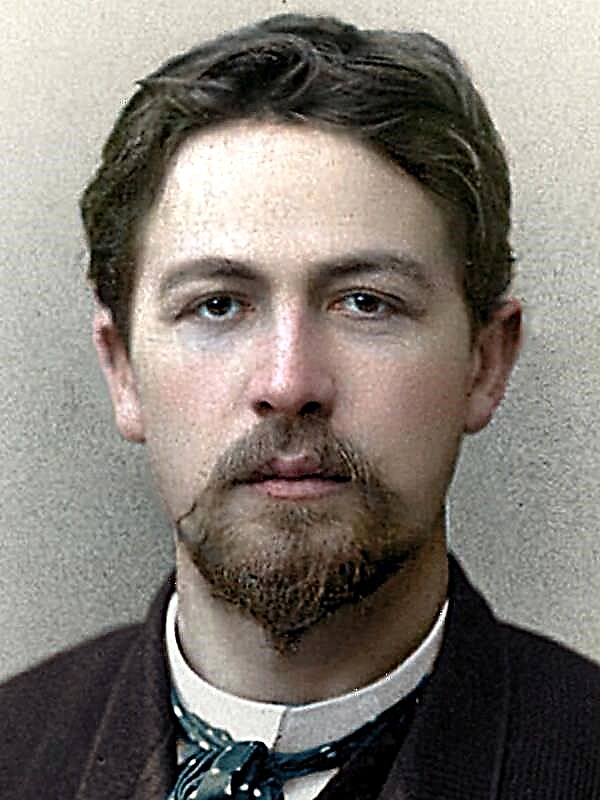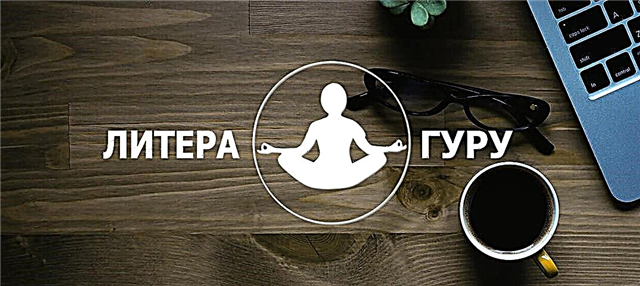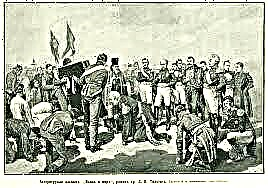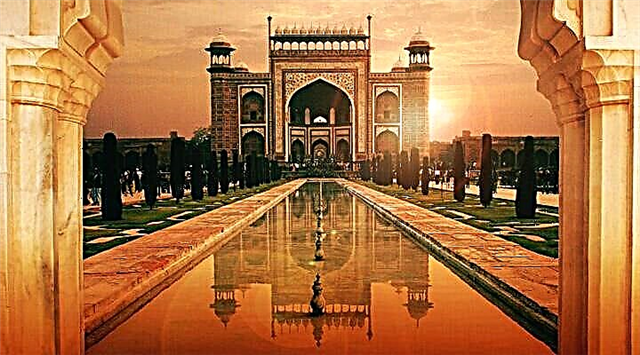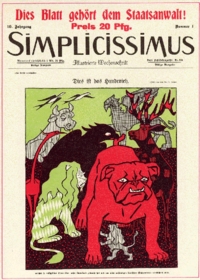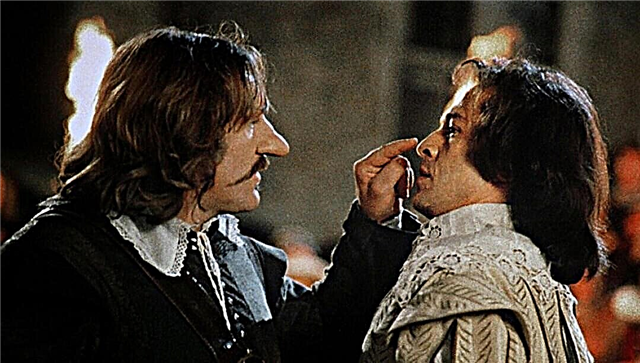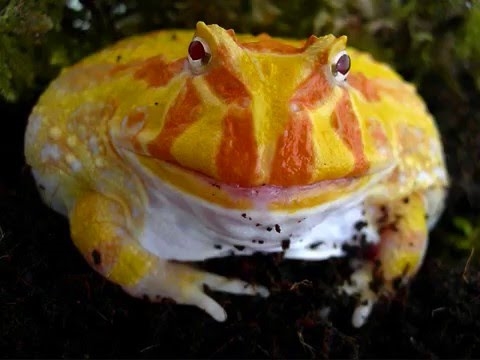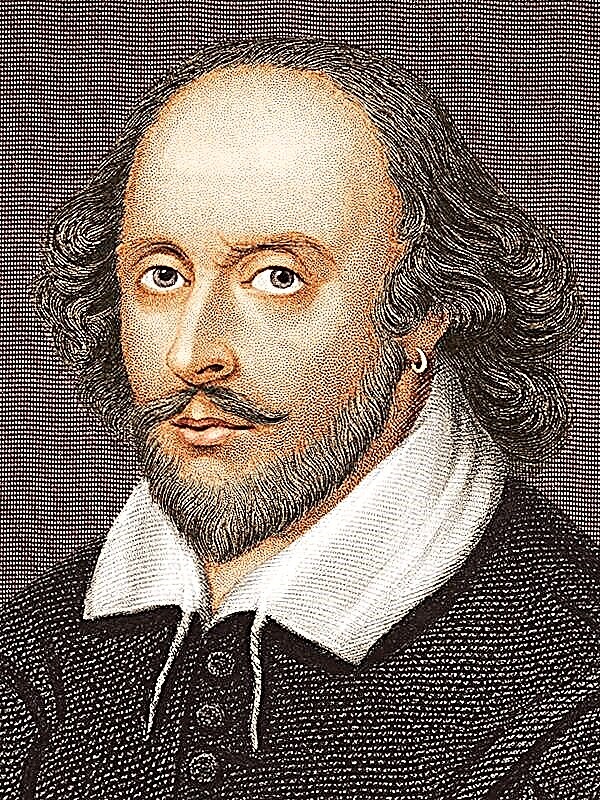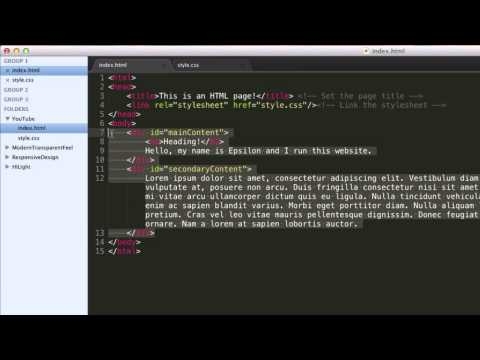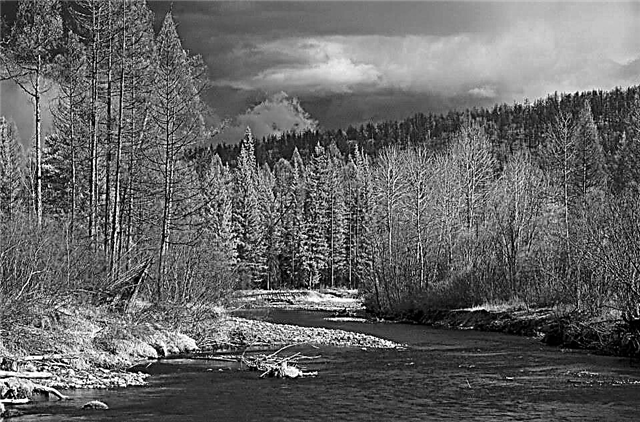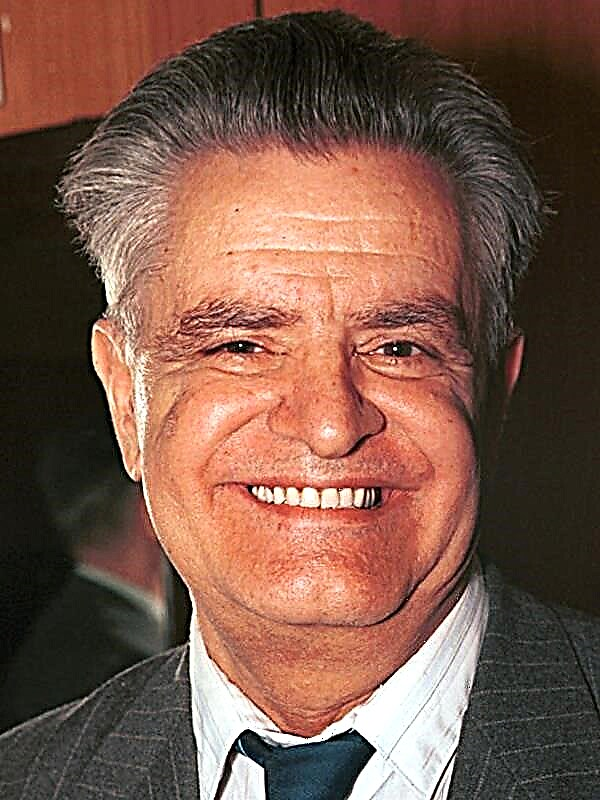The duration of the novel is 1797-1812, the fifteenth anniversary of the failed uprising of Tadeusz Kosciuszko and the third (1795) partition of Poland between Prussia, Austria and Russia. In the center of the story is young Rafal of Olbromsky, the son of a rather poor old nobleman. At a carnival in his father’s house, he accidentally meets with Mrs. Gelena. Then the holidays end, and he returns to Sandomierz, where he studies at the Austrian gymnasium. There, he and his friend and relative Krzysztof Zedro come up with the idea of a ride along the river into the ice. They miraculously survive, and Rafala is expelled from the gymnasium. He lives on his father’s estate in Tarnin, and his father is angry with him. But as soon as the possibility of reconciliation comes, Rafal commits another misconduct - he secretly meets with Helena. After a meeting, wolves attack him, he survives, but loses his horse. Gedena was taken away either to Warsaw or Paris, and Rafad was driven out of the house. He goes to his elder brother Peter, whom his father has long cursed. Petr, a participant in the Kostyushko uprising, is slowly dying from his wounds. The conflict with his father arose on political grounds; Peter left home when his father wanted to flog him.
His former comrade-in-arms, and now the rich landowner Prince Gintult, comes to visit Peter. Arguing with him about politics, Peter does not withstand stress and dies. Soon after the funeral, Rafal receives an invitation from the prince to settle with him as a courtier. It is not easy for Rafal to develop relations with the arrogant princess Elzbieta, the sister of Gintult; the reprisals of soldiers over Mikhitsik, the serf of Peter, whom he wanted to give free, hurt him. Confident that he received this free, Mikhtsik refuses to fulfill the corvee, for which he is accused of incitement to rebellion.
Prince Gintult out of boredom leaves for the Venetian Republic to the courtyard of the Pala, where he is caught up in hostilities between Napoleonic France and the rest of Europe. Polish legions are fighting on the side of France: the Poles hope that France will help their homeland regain independence. In Paris, Gintult meets many famous Poles, including General Dombrowski and Prince Sulkovsky, adjutant Napoleon. It turns out that the Napoleonic army, instead of liberating Poland, is planning a campaign in Egypt.
Meanwhile, Rafal, after graduating from the Lyceum, receives the right to enter the Academy and enters the class of philosophy. Living in Krakow almost unattended, he acts frivolously, plays cards. In the end, he gets tired of studying, and he returns home. There, contrary to expectations, he is welcomed warmly, and he plunges into agricultural work, trying to forget his love for Gelena.
Having managed to visit Egypt, Palestine and Greece during this time, Prince Gintult finds himself in Mantua, hoping to get home soon, but the fighting in the very heart of Europe stops him, and he is forced to join the Polish legion with the rank of gunner. Soon he becomes an adjutant to General Borton, the commander of artillery, and then he is sent to the headquarters of General Yakubovsky. However, Mantua, which the Poles so valiantly defended, still has to be surrendered. Under the terms of surrender, the garrison receives the right of free exit, and only Polish soldiers, most of them immigrants from Austrian lands, are to be surrendered to the Austrian command, and officers to be imprisoned in the fortress.
Only in the autumn of 1802 did the prince finally return to his homeland. Upon learning of this, Rafal writes to him, and Gintult invites him to his secretaries. Rafal moves to Warsaw. The prince leads a secluded life, and Rafala is a burden, as well as a miserable provincial costume. Having met on the street a former fellow student in the philosophy class of Järzymski, he enjoys starting to burn his life in the company of "golden youth", who have forgotten the ideals of Polish patriotism.
Soon it turns out that Prince Gintult is a Freemason, and thanks to him, Rafala is admitted to the Polish-German society “At the Golden Lamp”. Once there is a joint meeting of male and female lodges, where Rafal meets Gelena. She now bears the name de Wit and is the wife of the master of the lodge. It turns out that she does not love her husband and still yearns for Rafal.
Rafal offers to flee, and he and Helena settle in a peasant's hut high in the mountains. But their happiness suddenly comes to an end: once having spent the night in a mountain cave, they become victims of robbers. Gelena is raped in front of Rafal, and she, not having suffered shame, rushes into the abyss. Lost, a young man wanders through the mountains. hoping to meet people and stumbles upon a detachment of Lorraine cuirassiers who take him for a robber and throw him into a dungeon.
He leaves from there only at the beginning of September 1804, only because the soldiers found his documents in the hut where Rafal lived. When asked where the woman with whom he, according to the owner, lived, the young man claims that this is a prostitute from Krakow, whom he drove away.
Rafal goes to Krakow and enters the inn on the way, where he eats dinner, for which he has nothing to pay. Rescued by his friend at the Sandomierz gymnasium Krzysztof Zedro, who drove into the tavern to change horses. Zestro invites a friend to his house at the Stocklosa estate. He himself lives in Vienna, where he seeks connections to achieve the chamberlain. In Stoklosy, Rafal meets Szepan Nekanda Trypka, a ruined nobleman who lives on the estate as manager. Here reigns the spirit of enlightenment and Polish patriotism, rejection of Prussian rule. Inspired by the story of a former soldier who accidentally enters the estate, about Napoleon (the Poles still firmly believe that after the defeat of Prussia and Austria he will free Poland), Rafald and Krzysztof go to war. Neither the persuasion of the old man Zedro, nor the execution of three young men for trying to move "to the Poles" ...
Once in Myslowice, where the French detachment stands, they get a road to Siewierz, whose commandant is Captain Yarzhimsky. He offers them to stay, promising shortly officer ranks, but the young people want to be promoted to officers from the rank and file, so they enter the Krakow cavalry as militias.
Here the paths of Rafal and Zedro diverge: Zedro stays in Krakow, and Rafal enters the selected horse regiment of Dzevanovsky and goes north, occupied by Prussian and Russian troops. He participates in the battle of Tczew, in the capture of Gdansk. The victory over the Russian troops near Friedland on June 14, 1807 leads to the exclusion of the Tilsit peace, according to which the Grand Duchy (Duchy) of Warsaw is created on part of the Polish lands, while Galicia and the southern regions of Poland remain with Austria.
Before participating in only minor skirmishes, Zedro faces a dilemma: either returning to peaceful rural labor, or remaining in Kalisz as an officer in peacetime and burning his life. Then he, along with Wahmister Gaikos, goes to the Lancers to stay in the Napoleonic army, and takes part in the Spanish campaign of Bonaparte. On November 23, 1808, Zedro received an officer rank for the victory at Tudela, and he was shell-shocked at Calatayud. Wounded, he listens to the manifesto of Napoleon, abolishing the rights of the feudal lords and church privileges, as well as the "holy" inquisition. The young man understands that he fought not in vain. Suddenly an emperor walks past his stretcher, who speaks to him. Having uttered “Vive la Pologne!” From the last forces, Zedro loses consciousness. After recovery, he returns to his regiment.
In 1809, a new campaign begins - between France and Austria. On April 19, Rafal takes part in the battle of Rashin. However, despite the victory, the Poles retreat: the Saxons abandoned their allied obligations. Wounded Rafal gets into the infirmary, arranged in the Gintult's palace. The prince has changed beyond recognition; his Friend de Wit died fighting on the side of the enemies. From Gintult, Rafal learns that Warsaw surrendered to the Austrians under an agreement between France and Austria.
After such a betrayal, confusion ensues in the camp of the generals. General Zayonchek suggests leaving the Principality of Warsaw and going to Saxony to join the emperor, hoping to return later. Dombrowski offers to attack the Austrians until they crossed the Vistula and built a bridge, capture all of Galicia, raise the people ... Everyone accepts this plan.
Polish troops cross the Vistula and go to Galicia. After the failed defense of Sandomierz, Gintult falls into the hands of the Austrians, but he is saved by Mikhtsik, a servant of Peter Olbromsky. Gintult and Rafal do not allow artillery to destroy the church of St. Jacob to stop the advance of the Austrians, and they have to flee. So Rafal becomes a traitor, expelled from the regimental lists, and forced to hide in the estate of his father. Both the wounded Gintult and the soldier Mikhtsik find themselves there.
However, the Austrian cavalry approaches the Tarnins, and Rafal and Mihtsik are again forced to flee. Rafal returns to his regiment to his former position, and only thanks to a quick change of events does he manage to avoid trial, demotion or other repressions. The Polish army once again comes forward - this time to the south. Passing through the uncle's estate, Rafal finds the estate burned, and Pan Nardzewski hacked. Rafal becomes the rightful heir to his uncle's property, gradually rebuilds the house, sows bread ...
Comes 1812. Krzysztof Zedro arrives to visit Rafad, who speaks of a "great war" - he is going to participate in Napoleon’s campaign against Russia. In mid-August, the corps under the command of General Ponyatovsky went to join the Napoleonic army. Zedro and Rafal see the emperor with their own eyes. They are full of heroic hopes.


